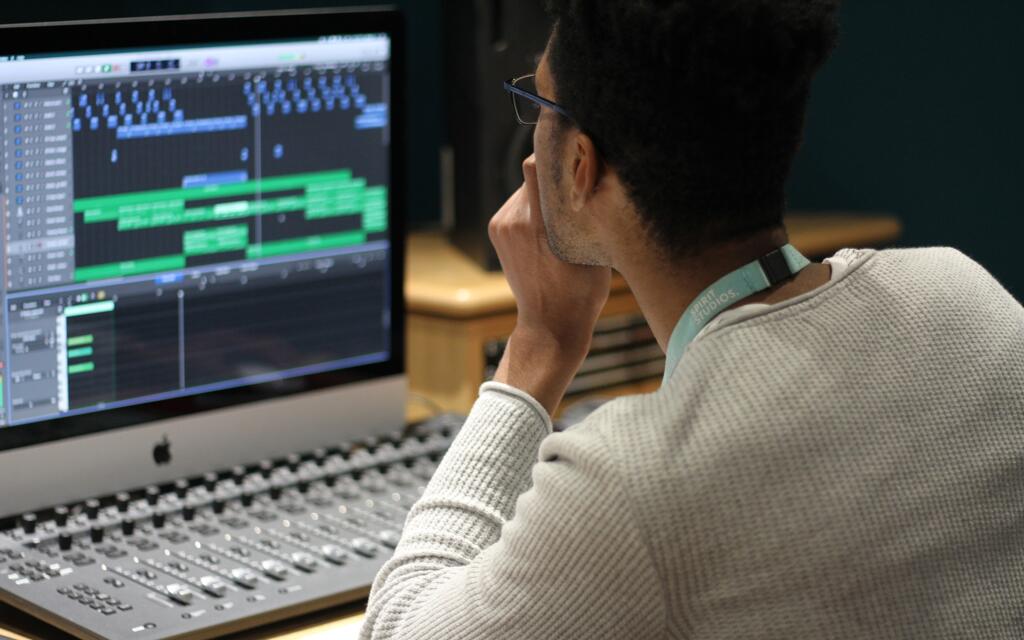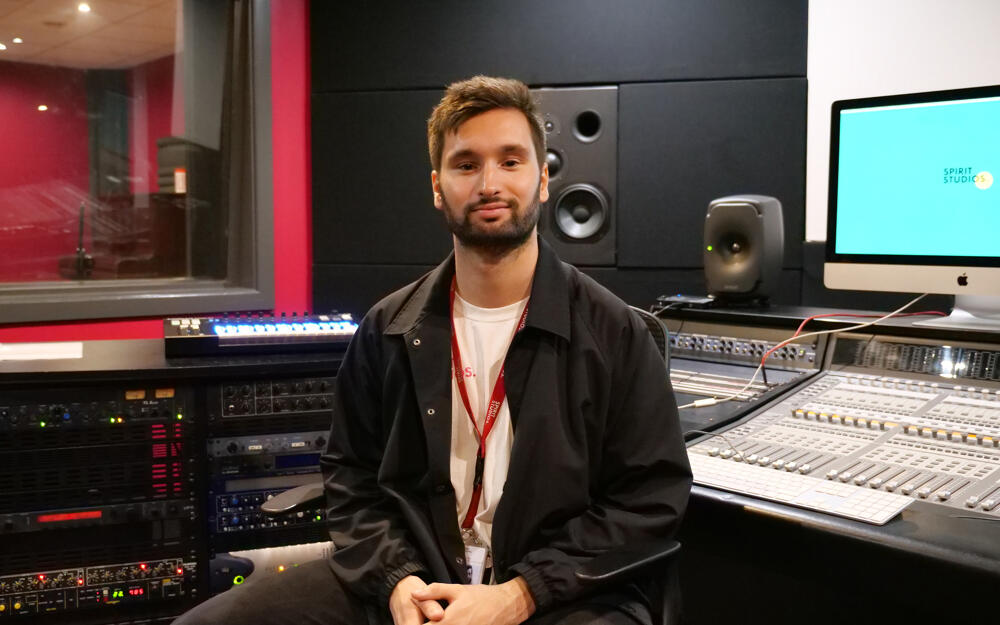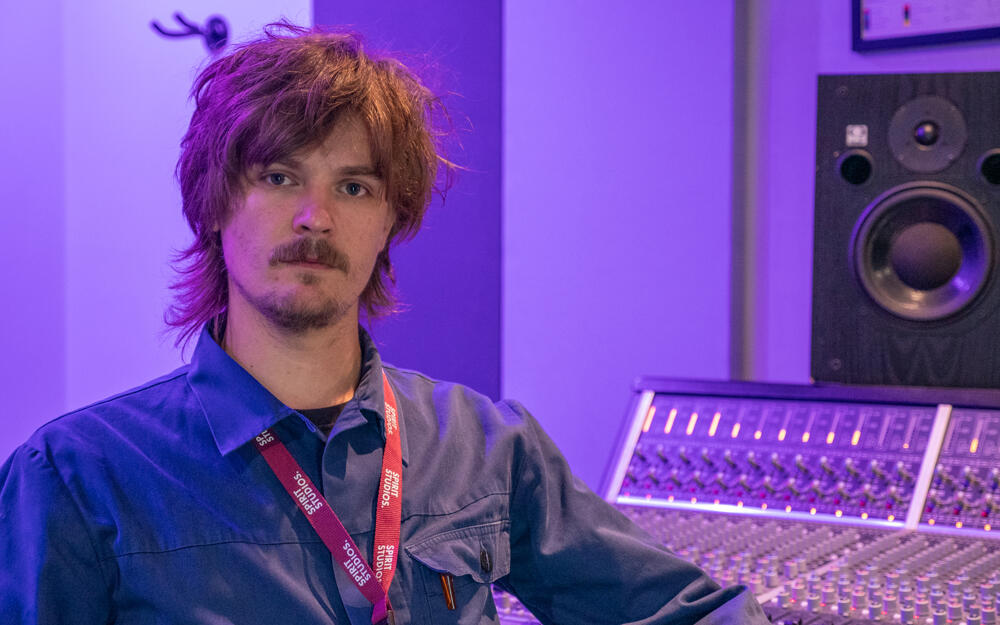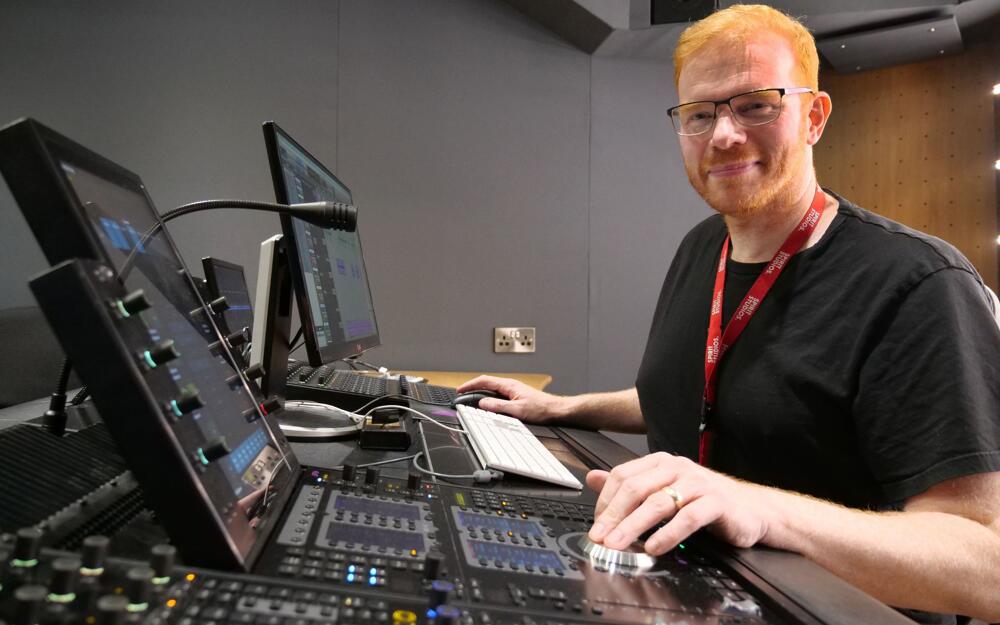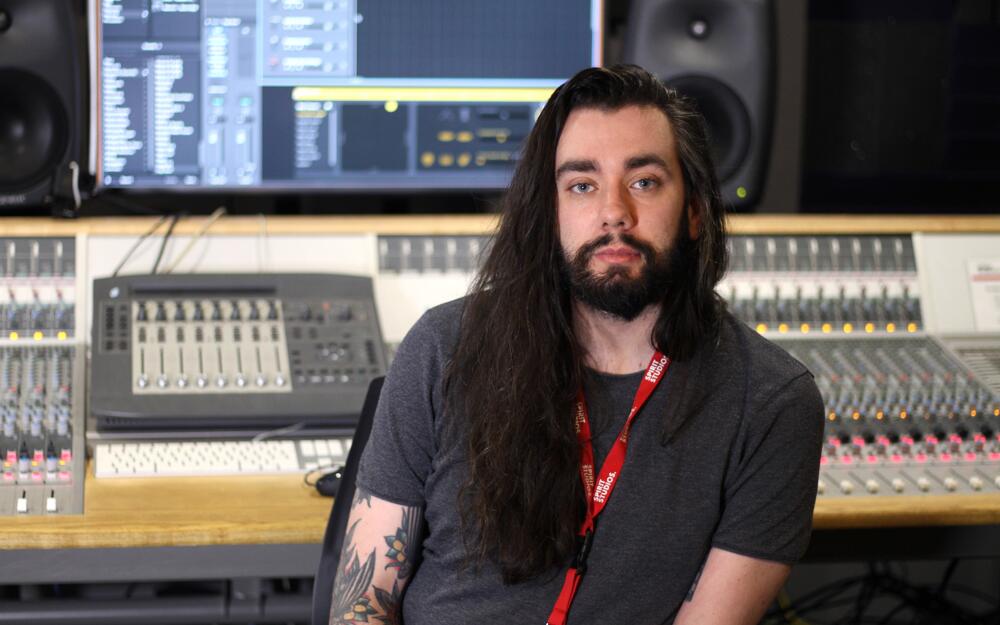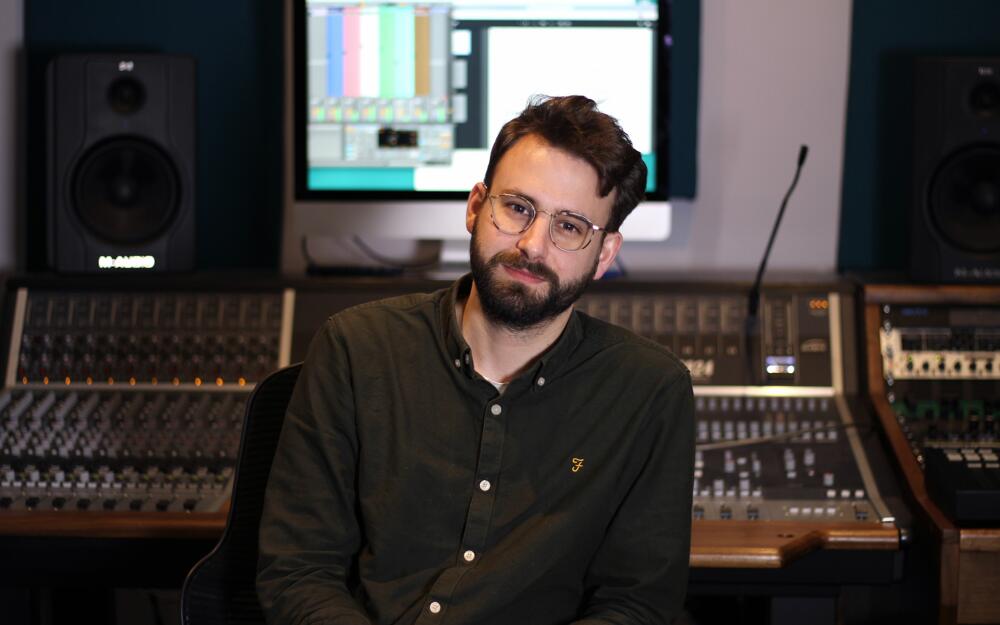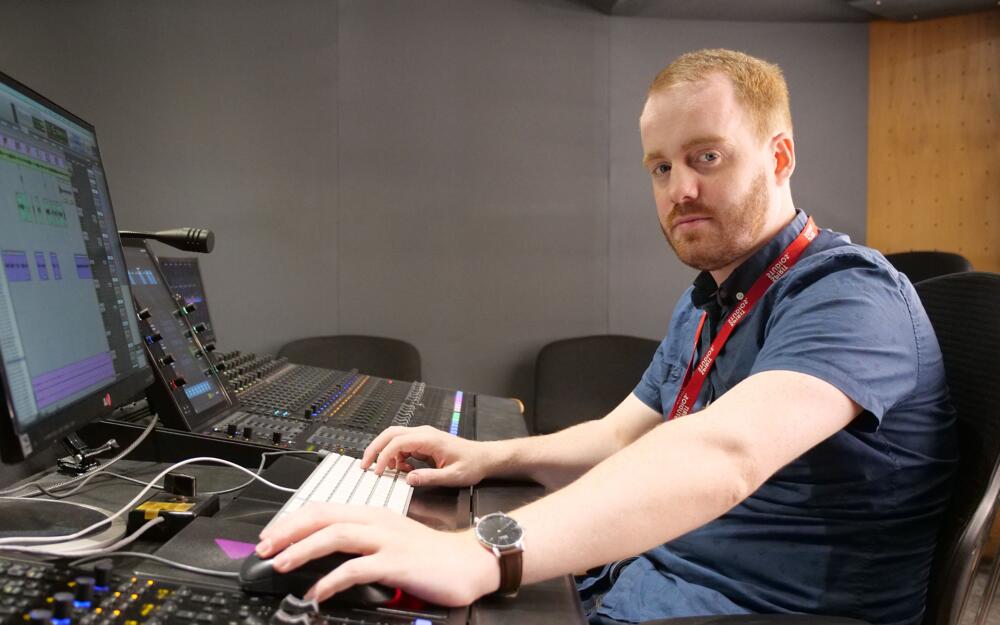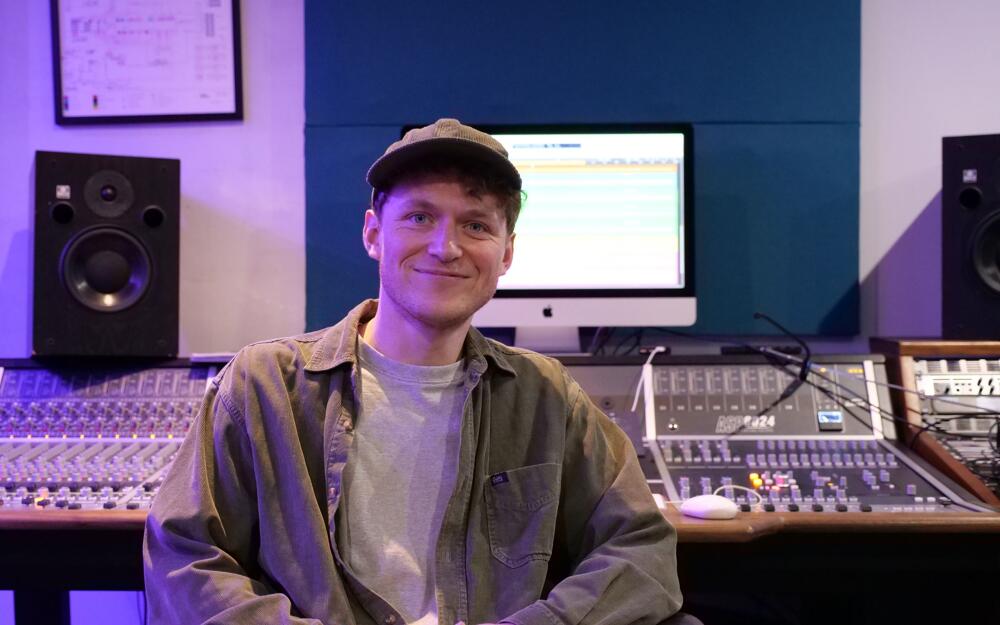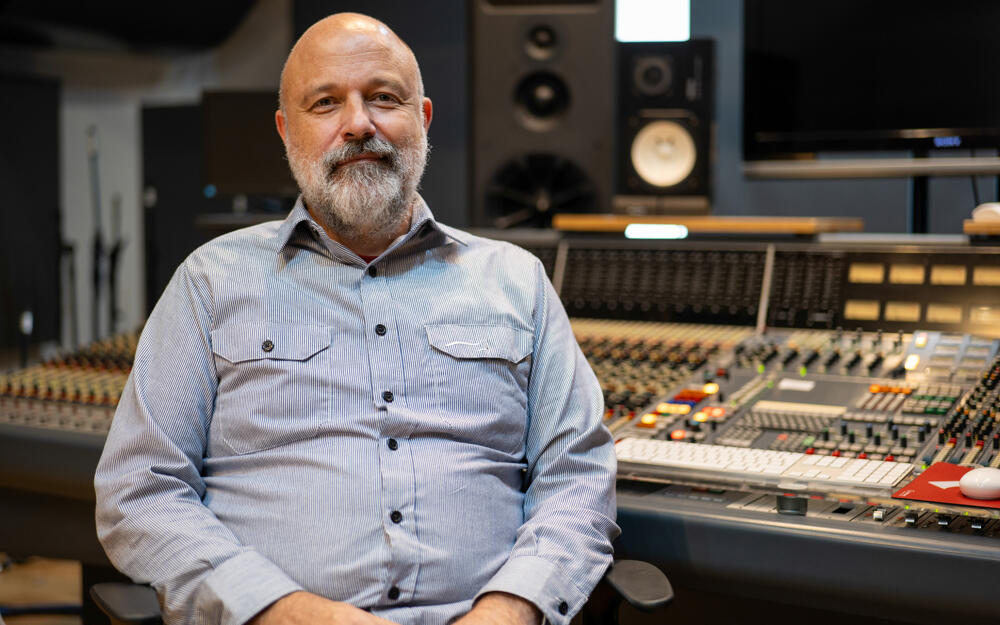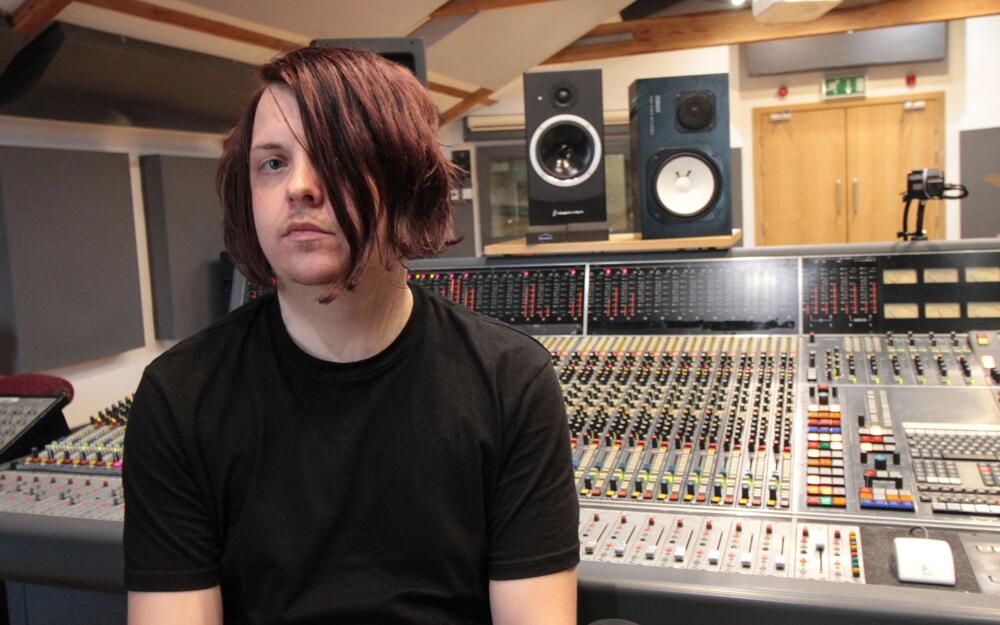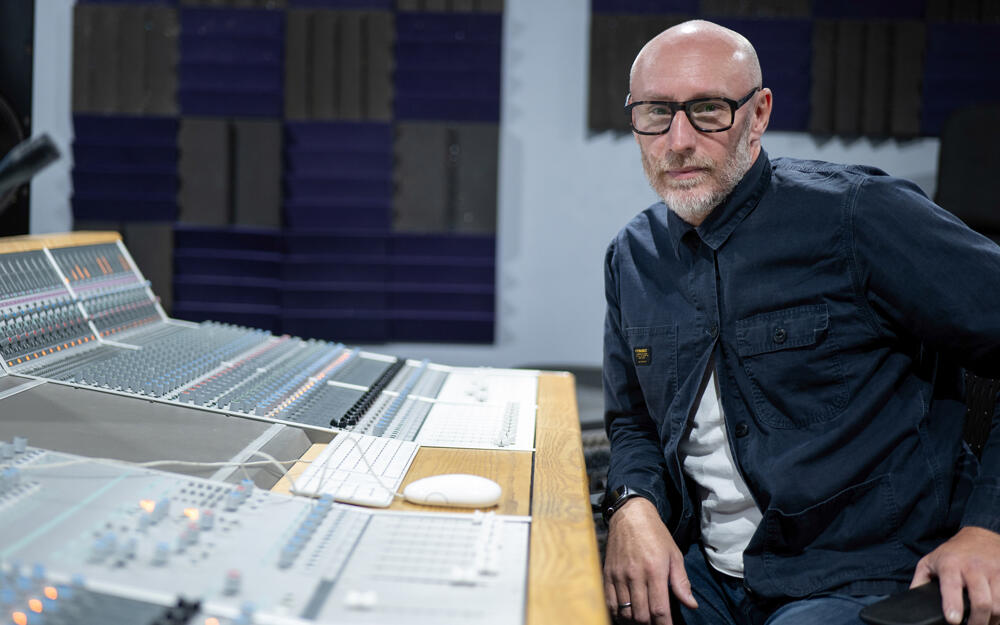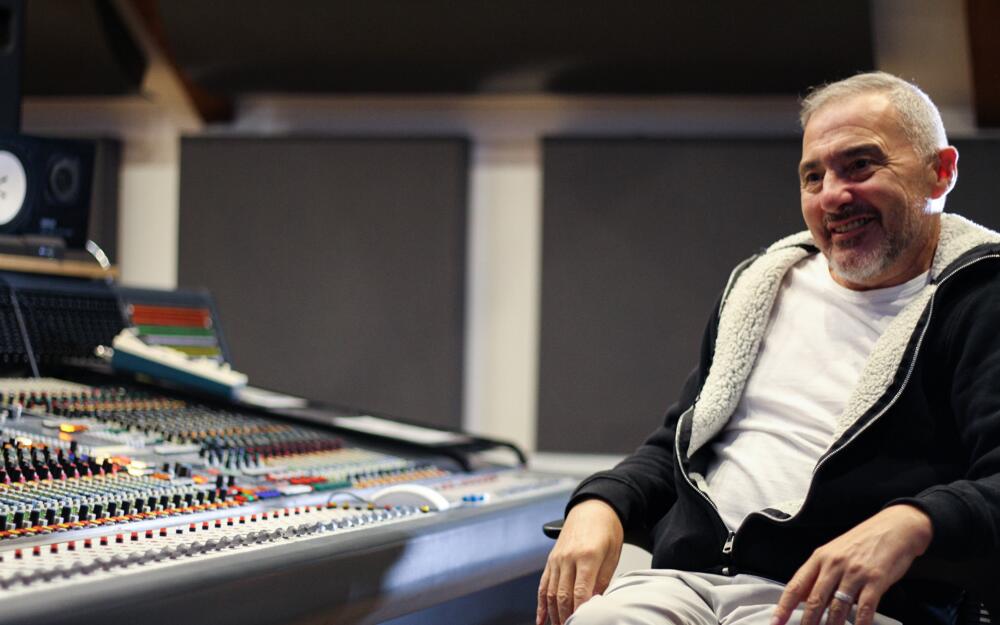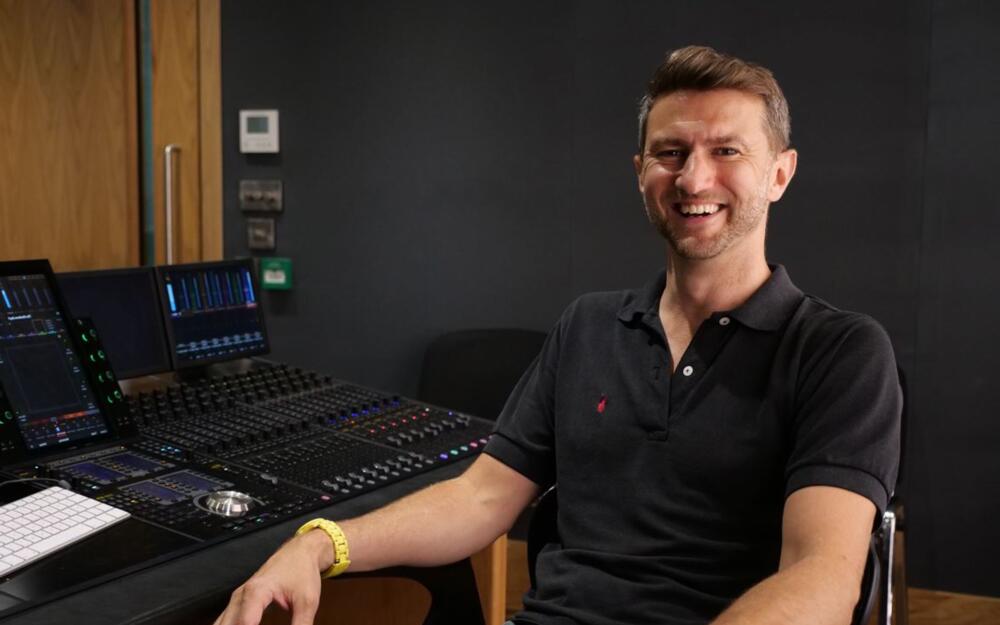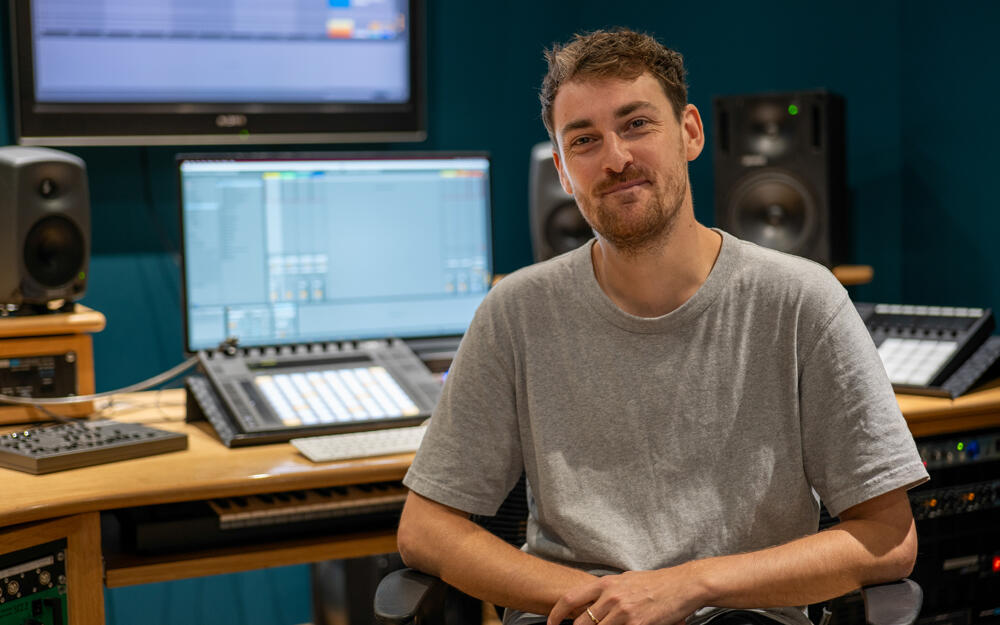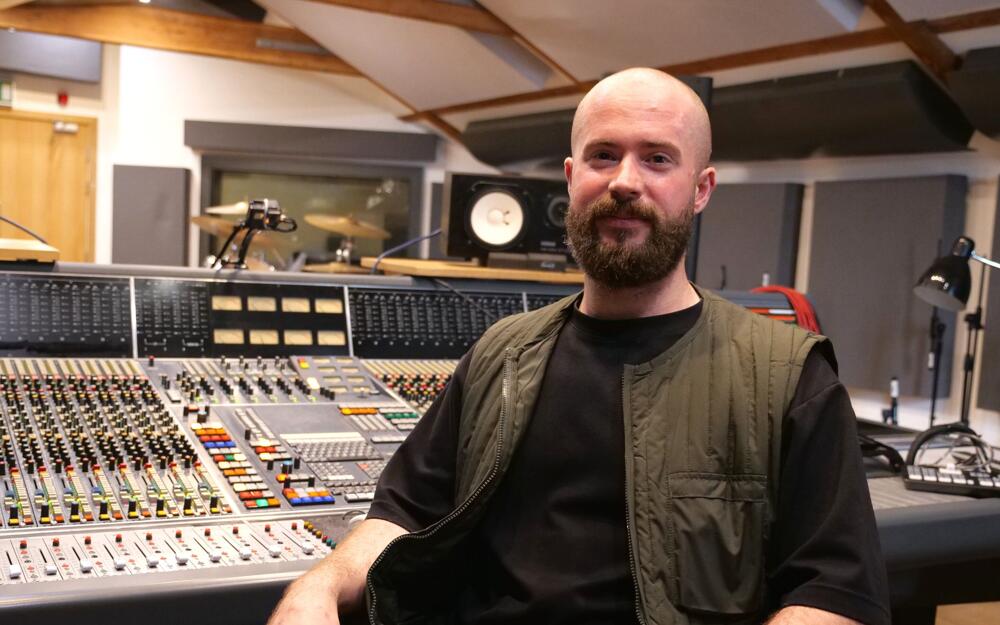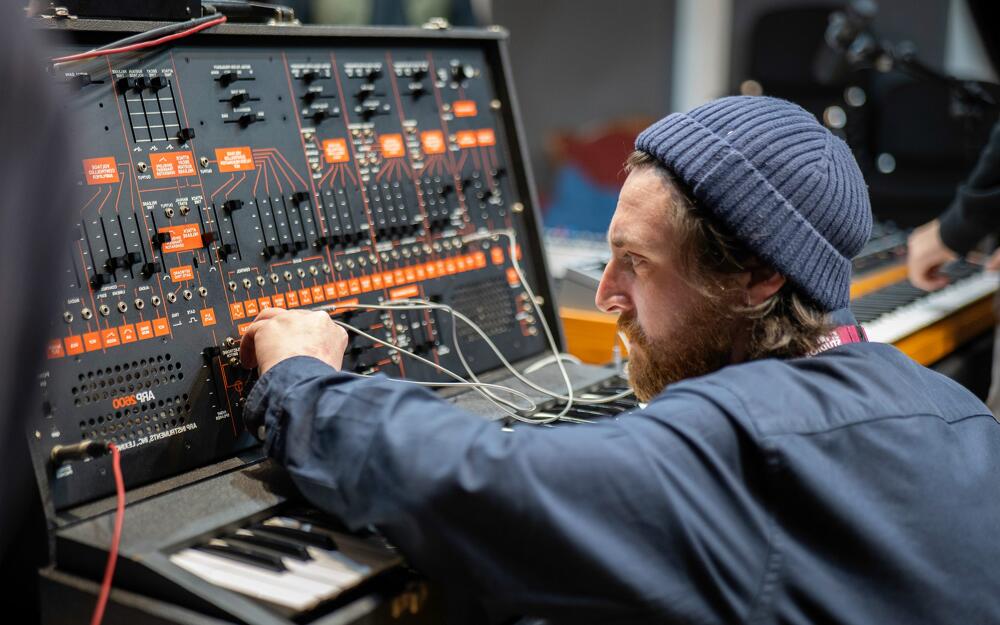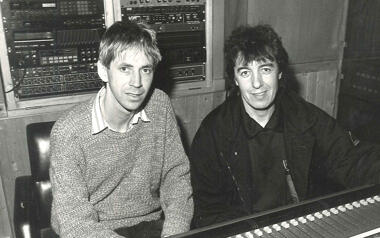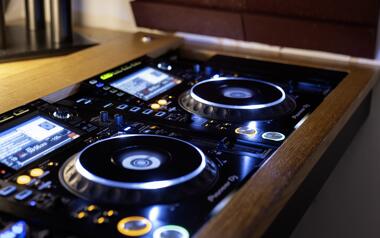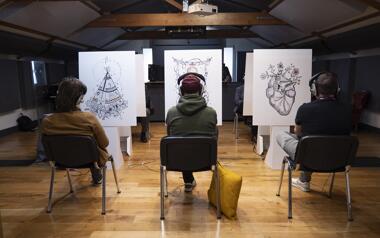What is music production?
What defines a music producer and their involvement in the creative process varies from person to person. But generally, music production involves five key principles; composition, capture (recording), editing, mixing and mastering.
Music producers are involved in the entire process of creating music and so there are a variety of pathways to choose from. During your studies in music production, you’ll become an expert in harmonisation, synthesis, music theory and sound mixing, as well as business strategy, networking and project management. The possibilities are endless.
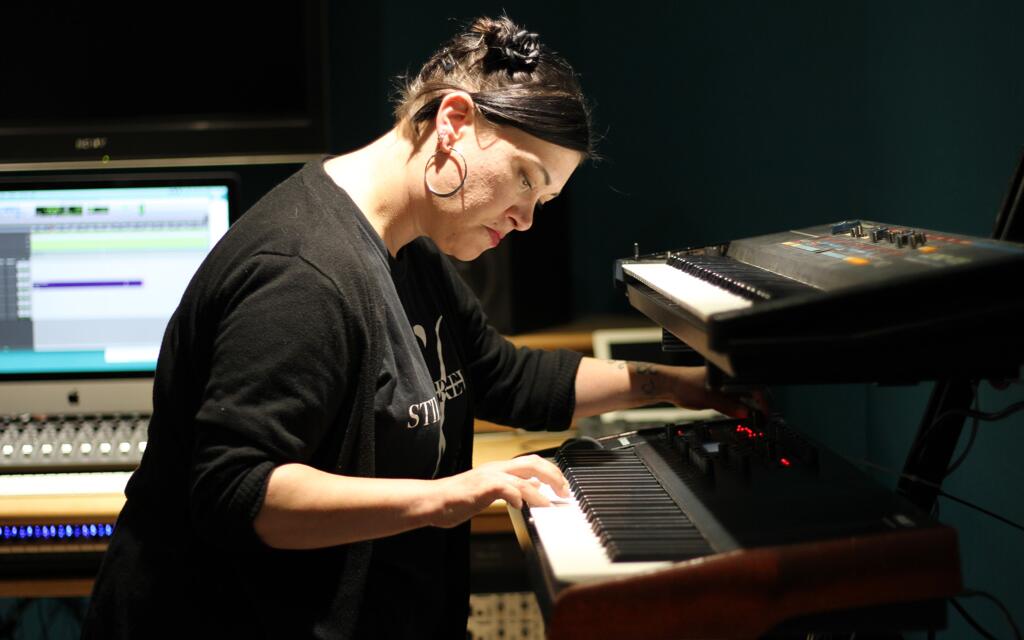
Why study music production at Spirit Studios?
Our facilities can’t be beaten. When you embark on one of our music production courses, you’ll have enviable access to a range of recording studios, DJ booths and equipment, allowing you to experiment and push your musical style to its full potential. You’ll get to use some of the most revered audio equipment in the business. From a legendary Neve VR mixing console in an open-plan studio to industry-standard monitoring systems and software plug-ins , you’ll have everything you need to create commercial-quality releases when studying music production with Spirit Studios.
You’ll also have access to shelves crammed with instruments and sign-out equipment, including synths, drum machines and samplers, Gibson and Fender guitars, and over 160 microphones.
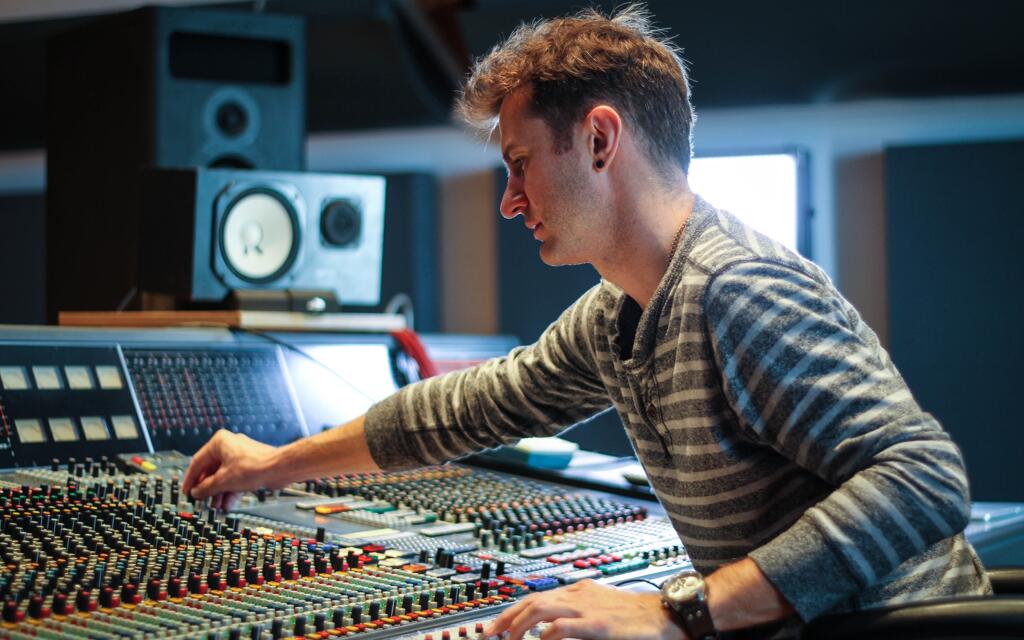
What is the importance of the music producer?
Music producers play a huge role behind the scenes of the music business. As experts in recording, editing and publishing, they’re critical in overseeing the complete process of creating a track or album. Often considered the “doers”, they realise an artist’s creative vision, guiding their sound and taking their ideas to a whole new level.
Making music is a collaborative process: sharing views, experiences and creative ideas to make a more interesting product. Music producers are not only the technical leaders, but are the creative driving force whom artists turn to for inspiration.
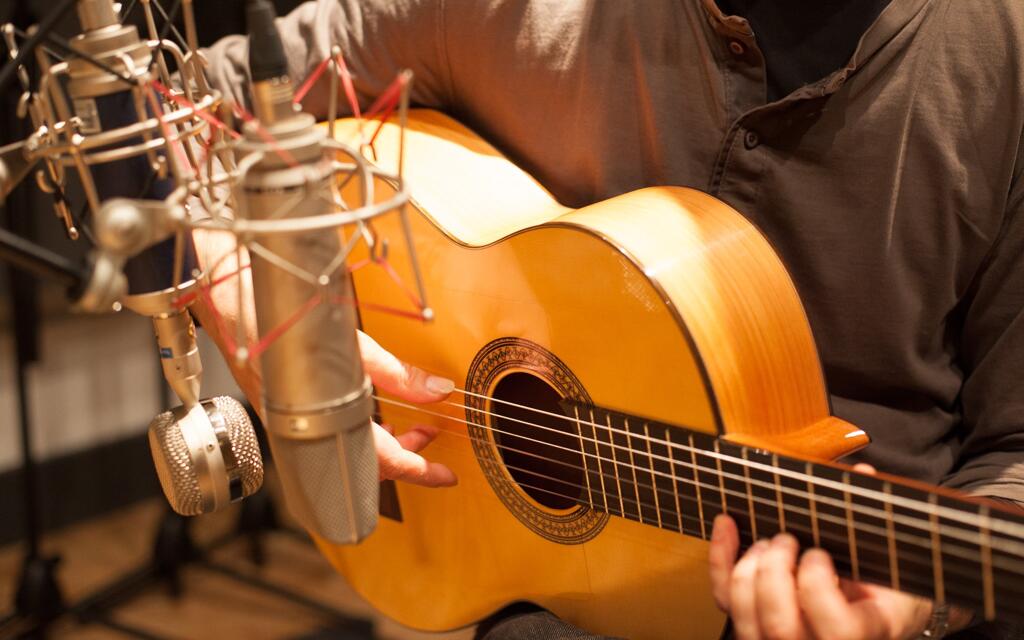
Our music production courses
We offer a range of music production courses to suit your experience and study preferences, including music production degrees, evening-based industry courses and short courses. You can filter by course level below:
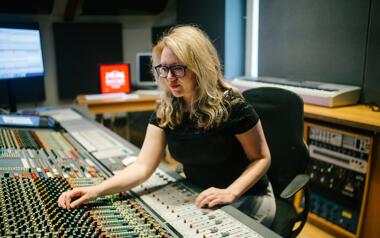
BA (Hons) Music Production
Duration:
3 years full-time or 5 years part-time
Start date:
16 September 2024
Entry requirements:
A minimum of 64 UCAS points at A2 or equivalent
Key areas:
Creating, recording, mixing and mastering
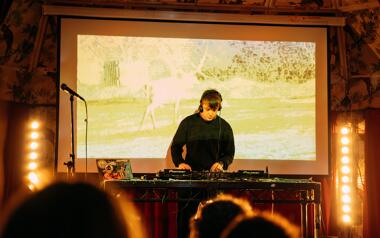
BA (Hons) Electronic Music Production and Performance
Duration:
3 years full-time or 5 years part-time
Start date:
16 September 2024
Entry requirements:
A minimum of 64 UCAS points at A2 or equivalent
Key areas:
Sequencing, sampling, producing and performing
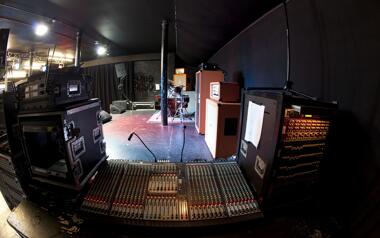
BSc (Hons) Live Sound Engineering and Music Production
Duration:
3 years full-time or 5 years part-time
Start date:
16 September 2024
Entry requirements:
A minimum of 64 UCAS points at A2 or equivalent
Key areas:
Sound-checking, monitoring, mixing and mastering
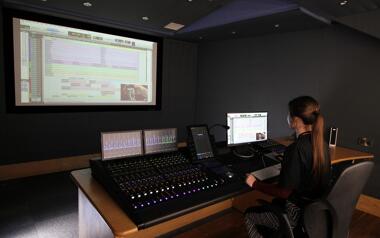
BSc (Hons) Entrepreneurial Audio Production
Duration:
3 years full-time or 5 years part-time
Start date:
16 September 2024
Entry requirements:
A minimum of 64 UCAS points at A2 or equivalent
Key areas:
Composition, acoustic theory and post-production

BA (Hons) Popular Music, Songwriting and Performance
Duration:
3 years full-time
Start date:
16 September 2024
Entry requirements:
A minimum of 64 UCAS points at A2 or equivalent
Key areas:
Songwriting, Performance, Music Production, Composition and Arrangement
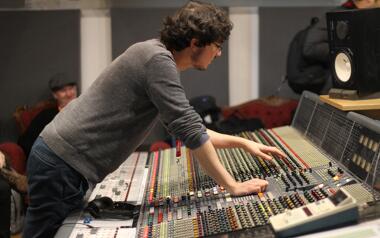
BA (Hons) Music Production with Foundation Entry
Duration:
1 year full-time foundation course, followed by 3 years full-time degree course
Start date:
16 September 2024
Entry requirements:
40 UCAS points at A2 or equivalent
Key areas:
Creating, recording, mixing and mastering

MA Music Production
Duration:
1 year full-time, or 2 year part-time.
Start date:
16 September 2024
Entry requirements:
Higher second-class Bachelor degree
Key areas:
Research, portfolio creation, advanced mixing and mastering
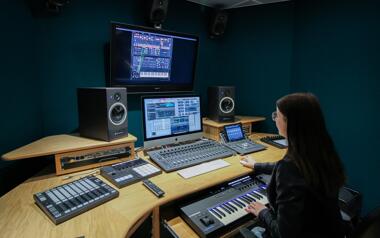
Creative Music Production
Duration:
12 months
Start date:
17 September 2024
Entry requirements:
No formal entry requirements
Key areas:
Creating, producing and publishing
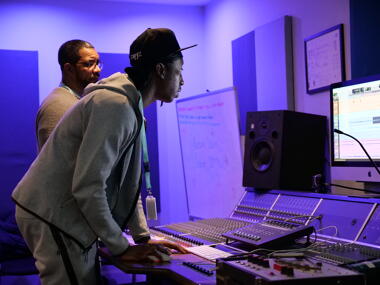
Sound Engineering and Music Production
Duration:
9 months
Start date:
16 September 2024
Entry requirements:
No formal entry requirements.
Key areas:
Introduction to the studio, Digital Audio Workstations, recording and mixing
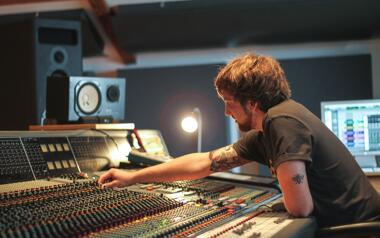
Studio Production and Mastering
Duration:
12 months
Start date:
24 September 2024
Entry requirements:
A good understanding of working practically in recording studios
Key areas:
Advanced recording, mixing and mastering
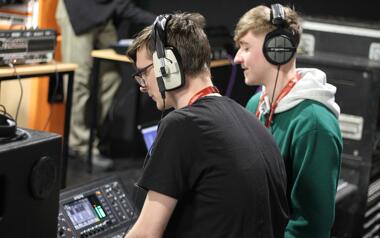
Sample into Sound
Duration:
5 days (non residential)
Start date:
5 August 2024
Entry requirements:
No formal qualifications required
Key areas:
Sound engineering, music production and music business
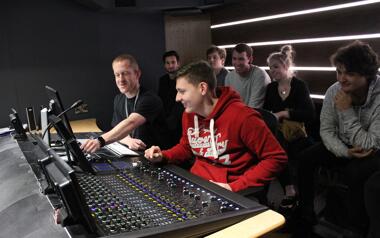
PT101 Pro Tools Fundamentals I
Duration:
2 Days
Start date:
20 April 2024
Entry requirements:
Knowledge of audio recording and DAW basics is required
Key areas:
Audio production, editing and mixing
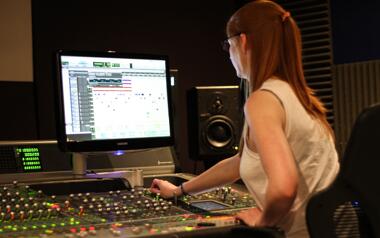
PT110 Pro Tools Fundamentals II
Duration:
3 days
Start date:
1 March 2024
Entry requirements:
Pro Tools Fundamentals I, or equivalent experience
Key areas:
Recording, clip-based editing and mixing
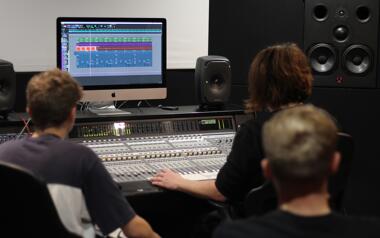
PT201 Pro Tools Production I
Duration:
2 days
Start date:
16 March 2024
Entry requirements:
Pro Tools Fundamentals I and II
Key areas:
Submixing, automation and auditioning techniques
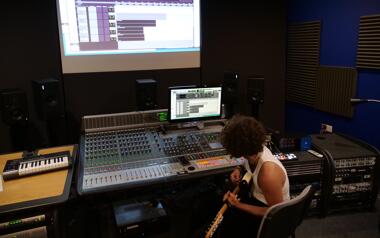
PT210M Pro Tools Production II (Music Production)
Duration:
3 days
Start date:
15 November 2024
Entry requirements:
Pro Tools Fundamentals I, Fundamentals II and Production I
Key areas:
Fine-tune automation, static automation and advanced MIDI production techniques
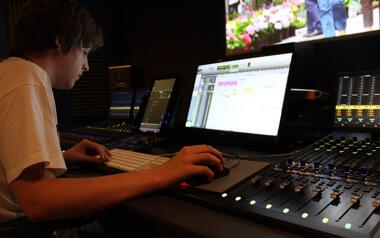
PT210P Pro Tools Production II (Post Production)
Duration:
3 days
Entry requirements:
Pro Tools Fundamentals I, Fundamentals II and Production I
Key areas:
Field recording, dialog editing and mixing audio to picture
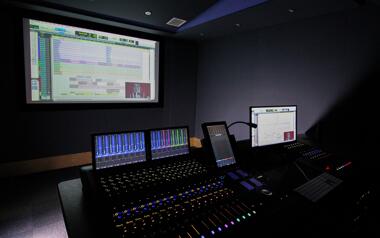
PT301S6 Essential Pro Tools | S6 Mixing Techniques
Duration:
1 Day
Entry requirements:
Pro Tools Fundamentals I and II, and Pro Tools Production I and II
Key areas:
Session management, system customization and expanded parameter control
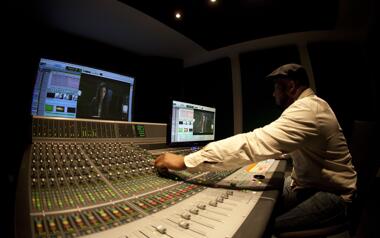
PT310P Advanced Post Production Techniques
Duration:
4 days
Entry requirements:
Pro Tools Fundamentals I and II, and Production I and II (Post)
Key areas:
Post production, sound design and Foley
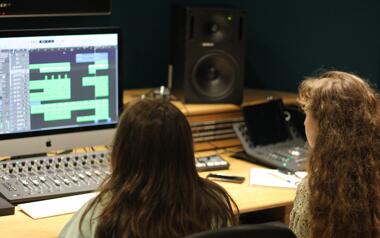
In-Person One-to-one Tuition
Duration:
2+ hours
Entry requirements:
No formal entry requirements
Key areas:
Previous students have studied areas such as DJ skills, mixing techniques, building a personal brand and more.
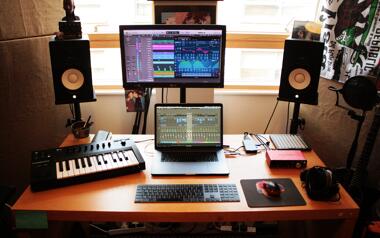
Online One-to-one Tuition
Duration:
2+ hours
Entry requirements:
No formal entry requirements
Key areas:
Previous students have studied areas such as post production techniques, DAW familiarisation, mixing techniques and more.
Features and benefits
Flexibility
Innovation and experimentation are our driving force and we celebrate a diverse range of approaches and traditions to making music. You’ll have complete freedom to explore your own creative interests, genres and styles when you choose one of our music production courses.
Enviable studio access
Students enjoy year-round access to purpose-built, state of the art facilities when training to be a music producer. Our studios, edit suites and live venue will become your second home. Whether you use Pro Tools, Logic Pro or Ableton Live we have all the digital audio workstation (DAW) software you need for audio production, mixing and mastering.
We're small in size
This allows us to stay agile, invest in the right kit and quickly reshape our courses to meet the skill needs of the fast-changing industry.
Portfolio led assessments
From your very first lesson right through to assessment hand-ins, your learning is hands-on. You won’t be sat in the back of a lecture hall, nor will you be asked to write essay after essay to achieve your degree in music production.
What careers will a music production course prepare me for?
- ADR Mixer
- Artist
- Audio Editor
- Audio-Visual Technician
- Composer
- Compositior for Moving Image
- Digital Content Creator
- DIY Label Manager
- DJ
- Dubbing Mixer
- Educator
- Foley Artist
- Game Audio Engineer
- Mastering Engineer
- Mixing Engineer
- Music Editor
- Music Journalist
- Music Producer
- Music Production Coordinator
- Radio Broadcast Engineer
- Radio DJ
- Recording Engineer
- Recording Studio Manager
- Remixer
- Session Musician
- Songwriter
- Sound Artist
- Sound Designer
- Sound Editor
- Sound Engineer
- Sound Technician
- Studio Engineer
What to expect
As you progress through one of our music production courses, you can expect to move to a state of independence that is essential when forging your own career path. Our courses are designed to give you hands-on experience to ensure you leave us industry-ready.
Whether you want to create music for moving image, become a studio engineer, the next best DJ or a mixing god, our range of courses give you the freedom to explore these areas of interest within music technology and electronic music production. With a variety of specialist modules, each course covers the core practical skills needed to succeed as a music producer and bring your ideas to life.
Studying music production takes place in a variety of formats including lectures, workshops, demonstrations, peer reviews and one-to-one tutorial support. Our aim throughout is to encourage your creative exploration and hone your technical skills, all so you’ll leave us as a confident, independent professional.
You'll cover topics and core modules such as
- Mixing and Mastering
- Composition and Arrangement
- Recording Techniques and Technologies
- Sound, Synthesis & Sampling
- Remixing and DJ Performance
- Music Production Career Focus
Music production student successes
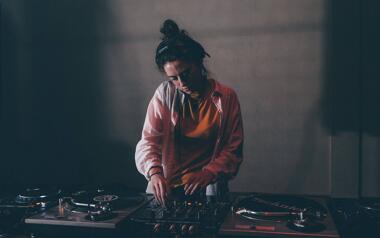
Orlagh Dooley
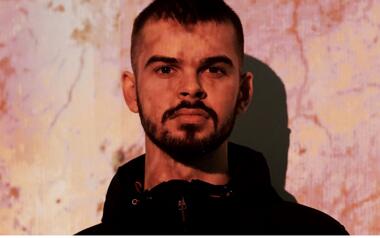
Andy Tomlinson

Holly Lester
Your music production tutors
Our tutors are all experts in their field, each with their own specialisms and industry experience. Whether you’re looking to work on number one songs or record your favourite bands, our music production tutors will get you to where you want to be.
Real opportunities
Our creative partnerships benefit our music business students by providing work placements, field trips, guest lectures, educational discounts and, of course, job opportunities.
Why study with Spirit Studios?
Outstanding facilities
Our facilities are designed to meet the needs of tomorrow’s music industry, ensuring you feel confident in any environment as a music producer.
Industry connections
You’ll have a range of exciting creative and collaborative opportunities, including hands-on work experience at legendary venues in Manchester and beyond.
Proven results
Our career focused attitude means that from day one, everything we do is designed with your future in mind.
Spirit +
We prepare our music production students for a bright future. Through our Spirit+ programme, we provide extracurricular masterclasses and workshops from leading industry figures.
Taught by industry-active experts
Our tutors have not only had years of experience in the creative industries, but share a commitment to helping you on your journey as well.
Community spirit
We’re a supportive community that takes pride in our small size. We’ll get to know you as an individual and tailor mentorship to your personal development.
Interested in studying music production with us?
Click below to start your application, register for an open day or get in touch with any questions
